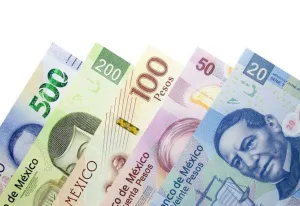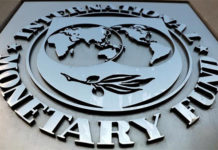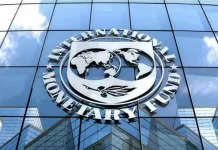Many nations of the world are battling with inflation.
For Argentina the wise move towards restoring the nations economy, is to devalue Peso, the local currency, by 50%
To tackle fiscal deficit, Argentina has increased taxes.

In a bid to overturn the current economic challenges facing Argentina, the Economy Minister, Luis Caputo, has announced a reduction in the value of pesos.
Peso is the official currency of Argentina, and it has now been devalued by 50%.
The move changes the dollar conversion rate to 865 pesos per dollar from 365 pesos.
This decision was taken just days into libertarian President Javier Milei’s term.
Caputo announced on Tuesday, saying the plan would be painful in the short-term but was needed to cut the fiscal deficit and bring down triple-digit inflation.
You May Also Like: Why World Bank Wants Nigeria To Sell Petrol ₦750
“The objective is simply: to avoid catastrophe and get the economy back on track,” the minister said.
Caputo said the policy is needed to tackle a “deep fiscal deficit” he pegged at 5.5% of Argentina’s GDP.
He noted that the South American nation has had a fiscal deficit for 113 of the last 123 years, causing its economic woes.
“We’re here to solve this problem at the root. For this we need to solve our addiction to a fiscal deficit,” he said.
Argentina To Cut Down On State Jobs, Energy And Transportation
The Minister also revealed that the government plans to cancel tenders for public works projects.
Caputo said some state jobs are going to be cut down to reduce the size of the government and spending.
He also announced cuts to energy and transportation subsidies without providing details or saying by how much.
The minister said Milei’s administration is reducing the number of ministries from 18 to nine.
Other measures include ending transfers to local governments, and a temporary increase in non-agricultural taxes for exports and imports.
The government also announced a temporary expansion of direct aid through the child benefit and food aid debit card.
Meanwhile, the International Monetary Fund (IMF) has welcomed the measures, seeing it as “a good foundation” for further discussions with Argentina about its debt with the institution.
Have You Read: How To Make Money Through Ethereum As A Nigerian
Argentina’s government has battled a chronic debt challenge for years.
In 2022, Argentinia’s ex-President Alberto Fernandez secured an outline deal with the IMF to restructure $44.5 billion of debt from a record 2018 bailout.
The country has also defaulted on its international sovereign debt three times — in 2001, 2014, and in 2020, in the middle of the COVID-19 pandemic.






